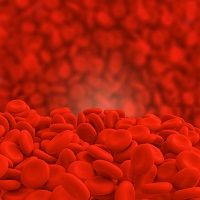Blood Filtering Offers Hope for Refractory Angina
Apheresis, the blood-filtering treatment used to remove cholesterol, appears to work for patients whose angina cannot be alleviated with drugs or surgical interventions researchers said today.

Apheresis centers might soon have some new patients.
The blood filtering treatment used in some patients to remove cholesterol appears to also work for patients whose angina cannot be alleviated with drugs or surgical interventions, researchers said today at the European Society of Cardiology’s ESC Congress 2016 in Rome, Italy.
Tina Khan, MRCP, of the Royal Brompton and Harefield National Health Service Trust and Imperial College in London, UK, said she and colleagues found the treatment successful in improving myocardial blood flow, as well as increasing patients’ exercise capacity, angina symptoms, quality of life, and atheroma burden.
“We are desperate for novel therapeutic options for these patients, “ Khan said in a news conference. “They are very challenging to manage.”
Lipoprotein(a) - abbreviated as Lp(a) - is similar in structure to LDL cholesterol, except for an additional protein attached called apolipoprotein. Raised Lp(a) is a strong risk factor for coronary heart disease. The protein may promote atherosclerosis and reduce blood flow through the heart , but no drugs have been shown to remove it.
Participants were randomised to weekly lipoprotein apheresis or sham treatments for 3 months and then crossed over for another 3 months, with a one-month washout period in-between.
“We got a highly statistically significant result,” Khan said, in all three measures of cardiovascular health.
There were 20 patients in the study. All had elevated Lp(a) levels above 500mg/L.
All were patients who despite getting the best medical therapies available, as well as surgical and/or percutaneous coronary revascularization, were not responding sufficiently, she said.
The primary outcome, measured with cardiac magnetic resonance imaging, was Myocardial Perfusion Reserve (MPR) — which is the ratio of the myocardial blood flow at stress versus rest after three months of lipoprotein
After treatment their angina frequency score showed a mean change of 35.0 vs. -5.0
“Our trial provides the first evidence that lipoprotein apheresis leads to improvement among these patients in the primary endpoint of myocardial blood flow, as measured by myocardial perfusion reserve, as well as the secondary endpoints of exercise capacity, angina symptoms, quality of life and atheroma burden. Therefore this treatment approach could improve the cardiac health and lives of such patients,” Khan concluded.
The results suggest a larger trial should be done, Khan said.